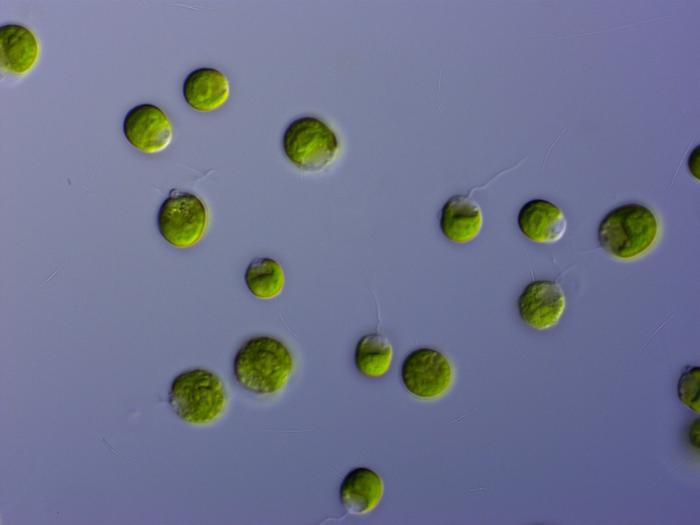Environmental change, such as ocean warming, alters resource competition and biodiversity. Thus, it is essential to understand how organisms respond to increased competition because changes in their size and metabolism affect the productivity of ecosystems.

Credit: © Moritz Klaassen, IGC 2023
Environmental change, such as ocean warming, alters resource competition and biodiversity. Thus, it is essential to understand how organisms respond to increased competition because changes in their size and metabolism affect the productivity of ecosystems.
Competition has long been recognized as a driving force behind rapid evolution. Still, until now, a mechanistic framework for identifying the specific traits that evolve and their trajectories has yet to be developed. Researchers at Gulbenkian and Monash University turned to metabolic theory, which explicitly predicts how competition shapes the evolution of metabolism and size. However, these predictions were not extensively tested, especially in communities where organisms must compete with multiple species. What is the best strategy to deal with interspecific competition?
With that unanswered question in mind, the researchers based their study on the experimental evolution of marine phytoplankton, which are unicellular microalgae that produce 50% of Earth’s oxygen. They used a green microalgae species called Dunaliella tertiolecta, which they evolved for ten weeks (~70 generations) in one of three environments: alone, competing with a population of this same species, or with a community of three other phytoplankton species.
Interestingly, researchers observed that the organisms evolved to be smaller and more energy efficient under competition. The unexpected findings arose from the rapid evolution of metabolic plasticity. Researchers discovered that the organisms that evolved with competitors showed greater metabolic plasticity, so they use resources faster when abundant but reduce their metabolism to be more energy efficient when resources are scarce. These changes mean they can sustain larger population sizes than organisms that evolved alone without compromising their population growth rate – they got the best of both worlds.
To Giulia Ghedini, the study’s first author, “This result made sense, but it was initially difficult to explain because the current (metabolic) theory does not predict improvements in both traits. Through several reiterations, we were able to piece it all together.” Researchers were able to predict the evolution of body size and population trajectories based on the metabolic theory “for the most part and also show that the evolution of metabolic plasticity can lead to some unexpected results,” added Giulia, joyful for such a discovery, that sheds some light on how organisms might respond to changing resource regimes driven by global change.
In the future, the research team wants to extend this work to determine if other competitors follow similar (or different) evolutionary trajectories and the overall consequences of such evolutionary responses for the community. Understanding how metabolic plasticity evolves is essential to forecast changes in the diversity and productivity of ecosystems.
The study was developed in collaboration with Prof. Dustin Marshall, Monash University, and funded by the Australian Research Council and la Caixa Foundation.
Journal
Current Biology
DOI
10.1016/j.cub.2023.06.026
Article Title
Metabolic evolution in response to interspecific competition in a eukaryote
Article Publication Date
30-Jun-2023




